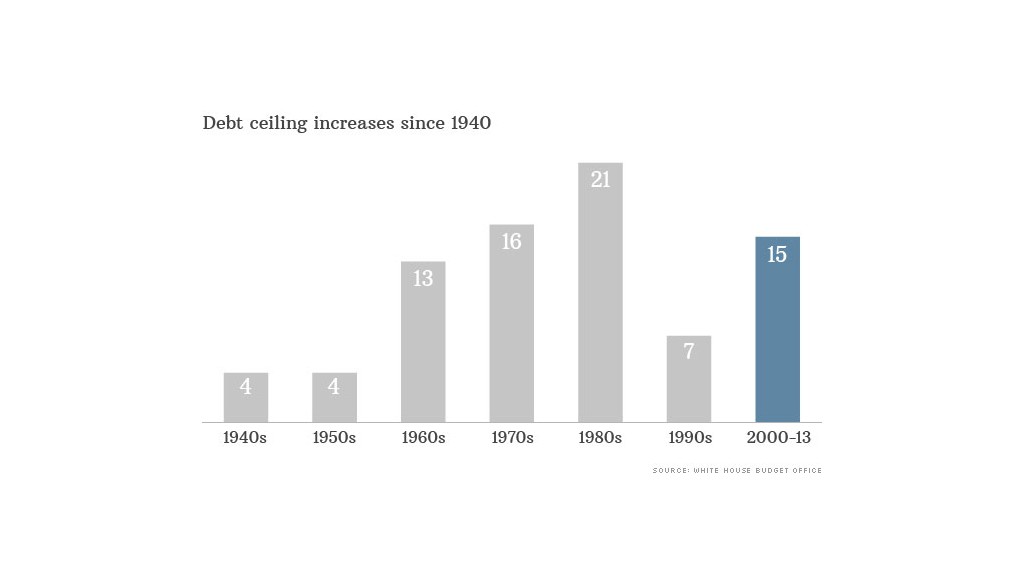
Here's how the latest episode of the debt ceiling drama will end: Congress will eventually raise or suspend the country's borrowing limit, probably for as much as a year.
The key word, though, is eventually. They could do it right now if they wanted. But they'll probably drag things out until the end of this month.
That's when Treasury Secretary Jack Lew has warned that the nation's borrowing authority absolutely, positively must be extended or the United States will risk defaulting on some of its obligations in March.
In the meantime, here's what's on tap in the next few weeks:
Republicans grope for a strategy: House Republicans keep saying they're going to demand something in exchange for raising the debt ceiling.
They just can't get agree on what exactly. This week, they ditched the two leading proposals they had been considering. And there's no obvious Plan B yet.
What's more, House Speaker John Boehner has already made it clear that default -- even getting close to it -- is not an option. So if push comes to shove, Boehner may just put a "clean" debt ceiling bill up for a vote and count on Democratic support to pass it.
Related: Lew warns 'time is short' on debt ceiling
Treasury starts juggling: This Friday marks the end of the current debt limit suspension.
Effectively, that means Treasury will not be authorized to borrow more money from the public, because the nation's debt will be at its legal limit.
But through the use of special accounting maneuvers, Treasury can temporarily reduce the amount of debt owed to various government funds, and thereby create some "headroom" under the debt limit that will allow it to continue borrowing in the markets.
Treasury has already said it will deploy the first of these maneuvers on Friday so the government may continue to pay all its bills in full as they come due.
But the special measures won't buy very much time. Treasury Secretary Lew estimates they will run out by the end of February.
If Congress hasn't acted, Treasury at that point will only be able to pay bills with the cash balance it has on hand plus incoming revenue. That won't be sufficient to meet all the country's obligations for long.
Democrats refuse to negotiate: Even if Republicans do agree on the demands they want to make, President Obama has made it clear he won't negotiate the issue.
That could mean another 11th hour standoff. Or, more likely, it could mean Republicans back down.
Given the political blowback from the government shutdown instigated last fall by a small group of conservatives, there isn't much appetite for more showdowns, especially in an election year.
"Republicans ... have little interest in making too much noise around this event," said Sean West, U.S. policy director for the Eurasia Group, in a note Thursday. "Many privately concede that they will receive little or nothing in return for raising or suspending the debt ceiling."


